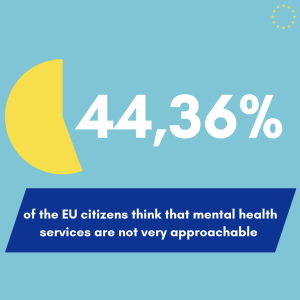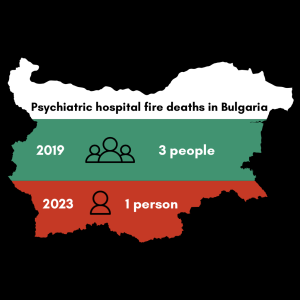
Source: Renew Europe
Despite the mental health system of its member states not being the EU’s official responsibility, the European Union expresses concern and a genuine desire to address those issues. Bulgaria does not stand out as an example for an effective mental health system, the country faces numerous challenges in this regard.
In its evolving role, the EU has recognized the importance of mental health across member states. Attempting to guide national decisions, the EU issues reports, nudging countries toward certain actions. However, limited funding and the national jurisdiction over mental health complicate this effort. Despite these challenges, the EU finds areas to influence it, such as sharing conducted research on this matter between member states and supplying medication as part of its responsibilities, shares Sissel van Run-Kvist, policy advisor on health of Renew Europe.
One of the healthcare systems the EU is worried about is the Bulgarian one. “Bulgaria as a state is not doing anything in direction of improving mental health: and this has been the case forever”, claims Irina Atanasova, founder of NGO “Skin” ,which works with the aim to tackle the mental health stigma and help Bulgarian people to overcome their issues.
Bulgaria’s mental health system faces several challenges that hinder its effectiveness in providing adequate care for its population. The system is characterized by limited resources, including a shortage of mental health professionals such as psychiatrists, psychologists, and social workers. Bulgaria faces challenges, with underpaid female psychiatric center workers resorting to locking patients in rooms, resulting in tragic incidents, including fatal fires.

Source: Channels Television; RadioFreeEurope
Numerous reports were sent from the EU to the Bulgarian government regarding the mental health system there. Claiming that conditions in psychiatric hospitals are not sufficient and that lack of specialists who could guarantee help for people with mental health problems is not acceptable for the EU member state.
In response to the reports, the Bulgarian government is trying to show improvements not even made by the government, but by NGOs like Irina’s one as their achievement. “Skin” made a huge impact on mental health in Bulgaria by creating the first padded cell, even though the government did not support this decision. However the Bulgarian government ended up mentioning it as a proof of improvement in one of the report.
Bulgaria is pretending to make steps forward but in fact the situation there is way below the European Union’s standards. Still its government does not show any interest in making it better, says Irina. The reason for that might be economical, political and demographical problems that are more prioritized.
Even though care for the mental health systems in the member states is not the responsibility of the EU, the European Union steps in with reports with a call for action. Those reports usually do not make a significant impact and citizens of less developed member states suffer from the lack of facilities.




